SHTFPreparedness may collect a share of sales or other compensation from the links on this page.
The question of humans eating bear meat often comes up in the realm of culinary curiosities. It evokes a sense of intrigue and wonder.
The need to answer a fascinating question arises when we embark on a gastronomic journey. Can you eat bear meat?
The concept of eating bear meat is not entirely new. It has been a part of indigenous cultures and some regional cuisines throughout history. However, determining its suitability for consumption requires careful consideration of various factors.
In this study, we seek to provide insight into the central question: can you eat bear meat? We will delve into the potential risks and health benefits.
Join us on this journey. We’ll unlock the culinary potential of this meat. And at the same time, we’ll unravel the complex issues surrounding it.
Is Bear Meat Safe to Eat
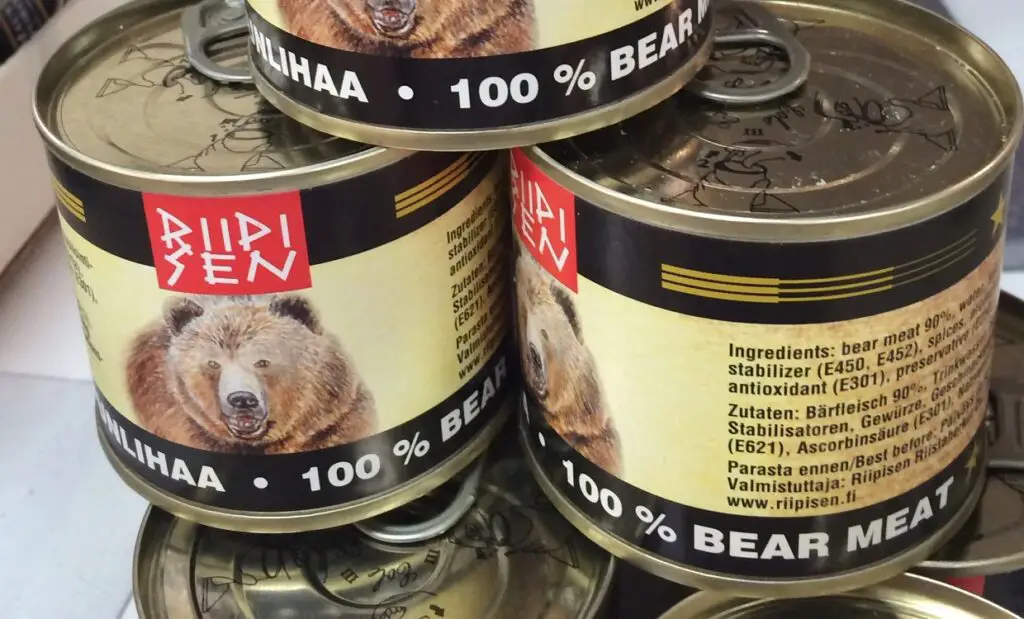
So, let’s start with the question of the safety of bear meat for human eating. And the first thing we will say is that there are still potential risks and factors that you need to consider.
Bear meat itself is not inherently toxic. However, there are certain precautions that you need to observe.
One of the main problems is the presence of trichinella parasites. You can find these parasites in bear meat or other game.
Unfortunately, this parasite can cause the disease trichinosis. It is essentially a striking infection that can lead to symptoms such as:
- Fever
- Muscle pain
- Digestive problems
The solution to this problem is very simple. All you need is thorough cooking at a high temperature. This way, you can effectively kill the parasites and ensure the safety of the meat. After that, you can safely eat bear meat.
We should also note that bear meat may contain more fat. Excessive consumption of bear fat has been linked to trichlorobiphenyl (PCB) contamination risk.
Therefore, we recommend eating bear meat in moderation. It’s best to buy meat and do it from trusted sources. That way, you can minimize potential health risks.
Be sure to follow these recommendations. Knowing the potential risks will help you. You can safely enjoy bear meat as part of a diverse culinary experience.
What Does It Taste Like?
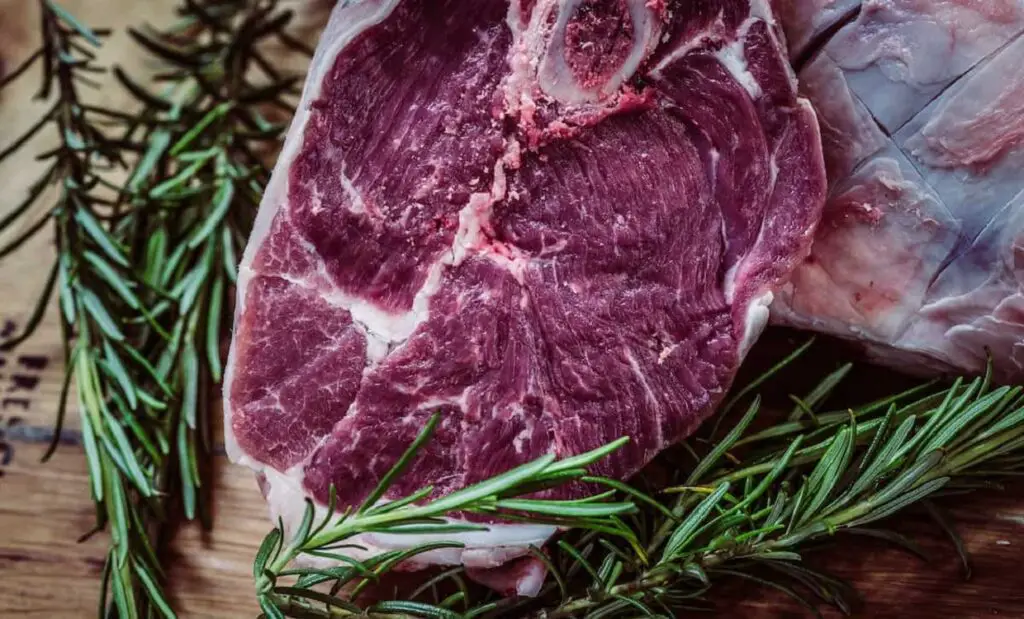
So, you already know the answer to the main question: can you eat bear meat? Now let’s figure out what it tastes like. What does bear meat taste like?
The taste of bear meat can vary depending on the bear’s diet, age, and preparation method. People usually describe bear meat as tasting rich and somewhat savory.
Some people compare it to a combination of pork and beef. But it is something in between and slightly sweeter and stronger in flavor.
In texture, bear meat resembles regular lean beef. That is, it is quite tender but, at the same time, quite moist.
The bear’s foraging habits often influence the unique flavor profile of bear meat. That’s because it can eat a variety of foods. It can be berries as well as nuts and even fish.
Ultimately, the taste of bear meat is a subjective matter. Each person perceives it differently.
Is Bear Meat Good for Your Health
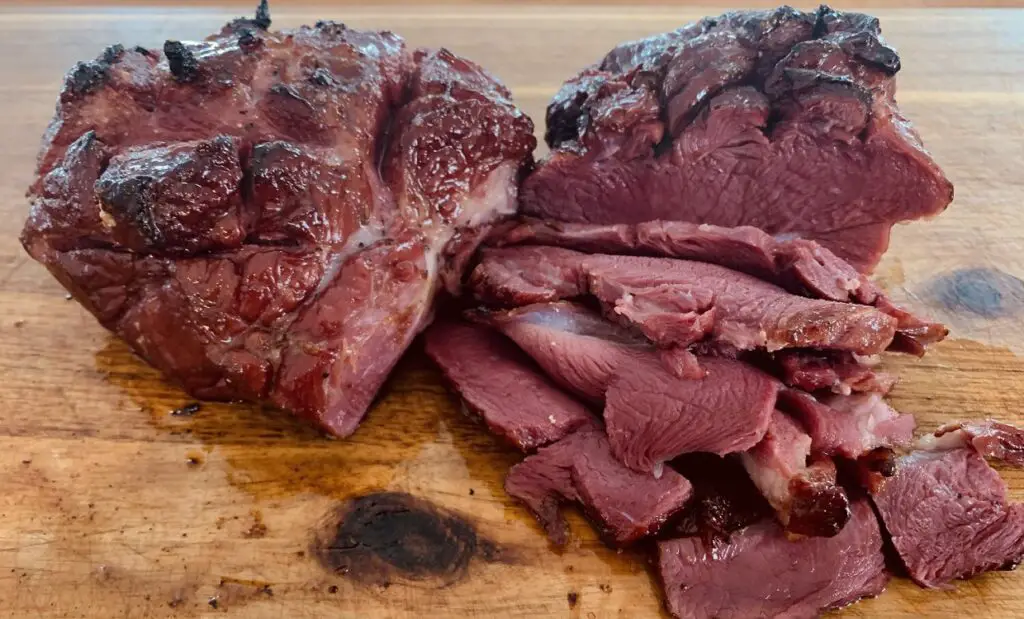
The health effects of eating bear meat are a matter of debate; everyone has an opinion. But in general, they depend on various factors.
Bear meat can provide the body with essential nutrients when humans eat bear meat. It can be protein as well as vitamins and minerals.
Given that the meat is lean, it promotes a balanced diet. It means that it supports muscle growth and recovery. However, there are considerations to keep in mind.
Bear meat, especially the fat, can contain high levels of cholesterol. It can be a concern for people with certain medical conditions.
Also, the presence of trichinella parasites in bear meat emphasizes the importance of proper cooking methods to eliminate the risk of infection. As we’ve said, just cook the meat over a good fire.
But environmental factors can also affect the healthiness of eating bear meat. Bears higher up the food chain can accumulate environmental contaminants. They can be a health hazard if eaten in excessive quantities.
With these factors in mind, we recommend eating bear meat in moderation. You should make sure that you cook the meat properly. And, of course, it is better to purchase it from reliable and regulated suppliers.
When including bear meat in your diet, it is vital to consult with a doctor. And needless to say, you should consider individual health conditions. It is the only way to make informed decisions about its potential benefits and health risks.
Mastering the Art of Preparing Bear Meat
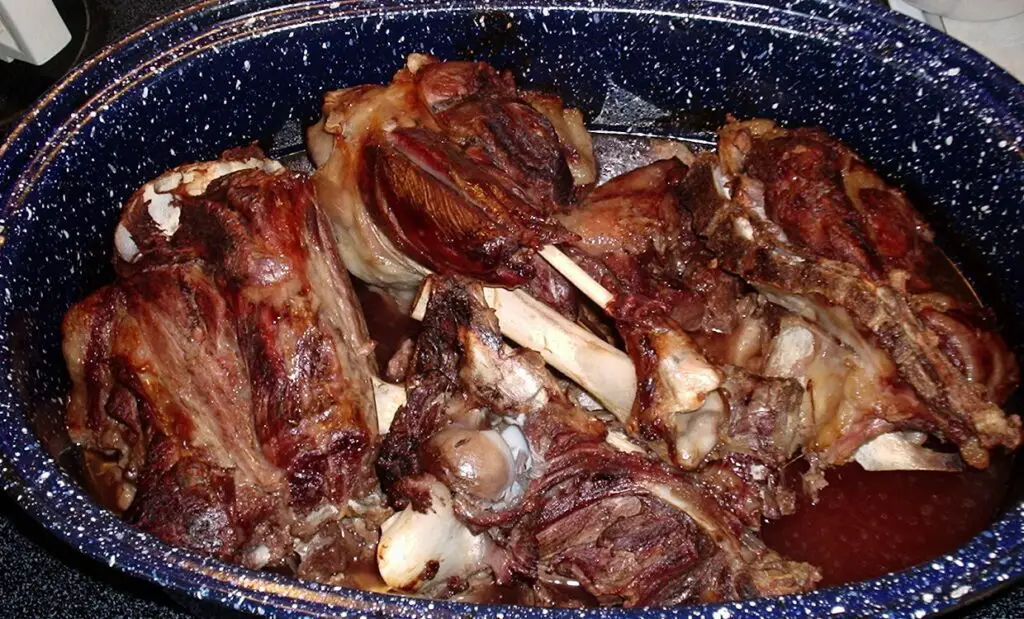
Now you know if you can eat bear meat and the potential risks associated with eating it. Now let’s figure out how to prepare it.
You must have the right cooking techniques for safety and taste. Here are some general recommendations:
- Defrosting – If you have frozen meat, defrost it first. That way, you can prevent bacterial growth.
- Trimming – Remove excess fat or connective tissue before cooking.
- Marinating – You should marinate the meat to improve its tenderness and flavor. Sour marinades with ingredients such as vinegar or citrus juices can be effective.
- Preparation – You should prepare the bear meat carefully. This way, you can eliminate the risk of parasite infestation. We recommend cooking the meat to an internal temperature of at least 160°F (71°C).
- Flavoring – Season the meat with herbs, spices, or marinades. You will enhance its natural flavors.
- Cooking methods – You can cook bear meat in different ways. It can be grilled, broiled, braised, or slow-cooked. Choose the method that suits your desired outcome.
Always refer to specific recipes and cooking recommendations. Follow food safety rules. This way, you can ensure your bear meat is cooked safely and enjoyably.
The Bear Meat Enigma: Unveiling Pros and Cons
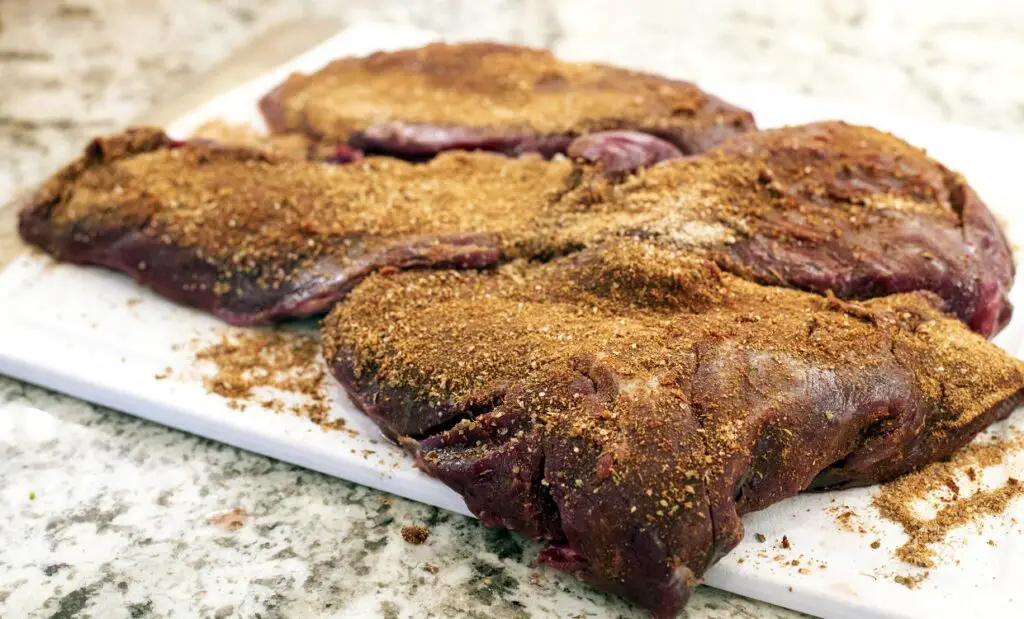
So you already know almost everything about eating bear meat. So let’s conclude this article with a breakdown of the pros and cons of eating this meat.
Pros
- Nutritional value – Bear meat is a good source of protein, essential amino acids, vitamins, and minerals. It contributes to a balanced diet.
- Culinary experience – Trying bear meat provides a unique and adventurous culinary experience.
- Cultural significance -In some cultures, bear meat has cultural significance. It is an important part of their traditional diet.
Cons
- Health risks – Bear meat can contain parasites. If not cooked properly, they can cause health problems. It can also contain elevated cholesterol levels.
- Ethical considerations – Bears are often hunted for their meat. It raises concerns about animal welfare and conservation efforts.
- Legal restrictions – Hunting and eating bear meat may be regulated or prohibited in some regions. It requires compliance with local laws and regulations.
Conclusion
The question of whether you can eat bear meat involves several considerations. Bear meat can be beneficial in terms of nutrition and culinary adventure.
But it is important to approach it with caution. The potential health risks underscore the need for proper technique.
Ultimately, people should weigh the pros and cons. Be sure to consult a doctor and remember to follow local guidelines. You must make an informed choice that fits your values and circumstances.
References:
